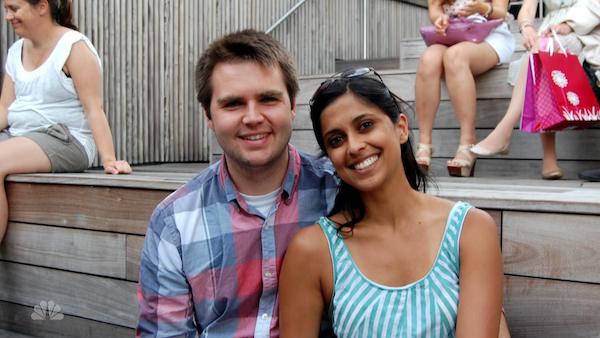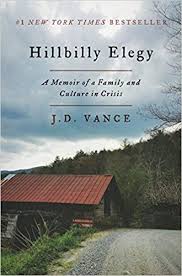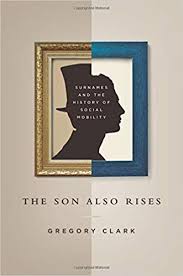
 One of the strange admissions I will make is that I have not read Hillbilly Elegy: A Memoir of a Family and Culture in Crisis. This is J. D. Vance’s book describing the various social and cultural forces which maintain deep pockets of poverty and dysfunction across much of greater Appalachia. Vance, though a Yale-educated lawyer, is from this region, and of the deprived class.
One of the strange admissions I will make is that I have not read Hillbilly Elegy: A Memoir of a Family and Culture in Crisis. This is J. D. Vance’s book describing the various social and cultural forces which maintain deep pockets of poverty and dysfunction across much of greater Appalachia. Vance, though a Yale-educated lawyer, is from this region, and of the deprived class.
I say strange because I happen to be cited in the book. Vance has told me that some of my writing on the historical origins of the Scots-Irish made him aware that he was not just a white American, that he had a very particular ethnicity in the broader Anglo-American context. The fact is that Vance’s politics are broadly consonant with mine, and I tend to be wary of reading books where I suspect I will agree with the overall message. I don’t find it useful to simply reiterate my own opinions, as I already hold them.
With all that said, I recently saw on Twitter that a literal Communist academic accused Vance of promoting the white genocide meme because he wrote about replacement level fertility among Americans. Just like an inquisitor sees witches behind every corner, American Leftists see a fascist and a racist everywhere they look. But that’s not the interesting point.
Vance responded that he had a mixed-race son.
I am not a specialist on J. D. Vance, so this was news to me. I didn’t know anything about his personal life. A little Google yielded the fact that Vance is married to an Indian American, a law school classmate. And, a little more research quickly yields the fact that she is from a much more privileged class background than J. D. Vance (most Americans would be!). In fact, judging by the community that she grew up in, it is highly unlikely that her family was not upper-middle-class (OK, it was easy to look up her parents and their professions, they are doing very well).
The question I pose here is that as the children of Mr. and Mrs. Vance grow up, will they perceive that they obtain privilege from their white father? Is J. D. Vance more privileged than his wife? A plain reading would probably result in the admission that this is ludicrous. The Vance children will grow up with a paternal lineage defined by hardscrabble lives, with the squandering of opportunities. In contrast, their maternal family will be descended from successful professionals. Immigrants who sunk roots in San Diego.
There is a lot of talk today about “intersectionality.” Usually, I don’t find that that is in good faith. But let’s take the intersecting parameters of the backgrounds of the Vances into account. Who is more privileged? I suppose it depends on how you define “privilege,” but my own personal take is that in fact, J. D. Vance’s wife is more privileged by background than he is, despite her visible nonwhiteness (which no doubt does result in some discrimination).
In the years before the Civil War, popular racial supremacism arose in the American South to engender solidarity of identity for whites, from the poor masses to the rich planter elite. It was the solidarity of the “aristocracy of the skin.” This explicit racial caste system was such that the poorest white was above the status of the most accomplished black. The way in which we talk about race and class in much of American discourse seems to default back to this idea.
 Many of my white academic friends (not all!) from working-class or poor backgrounds believe that because of their class status, they now have the same privilege as other white people. That the past is the past. That is, white people can move up and down the class hierarchy, and yet retain the skin privilege. History does not shadow them in the way that it does the dusky folk.
Many of my white academic friends (not all!) from working-class or poor backgrounds believe that because of their class status, they now have the same privilege as other white people. That the past is the past. That is, white people can move up and down the class hierarchy, and yet retain the skin privilege. History does not shadow them in the way that it does the dusky folk.
White people are magic.
As the 21st-century progresses I think some of us, of all races, need to move beyond this way of thinking. Many South Asian academics I know personally who come from privileged backgrounds speak of themselves as a subaltern and marginal people. But there’s nothing subaltern and marginal about their lives. Empirically I think the “white people are magic” thesis is just wrong. They bleed just like the rest of us.